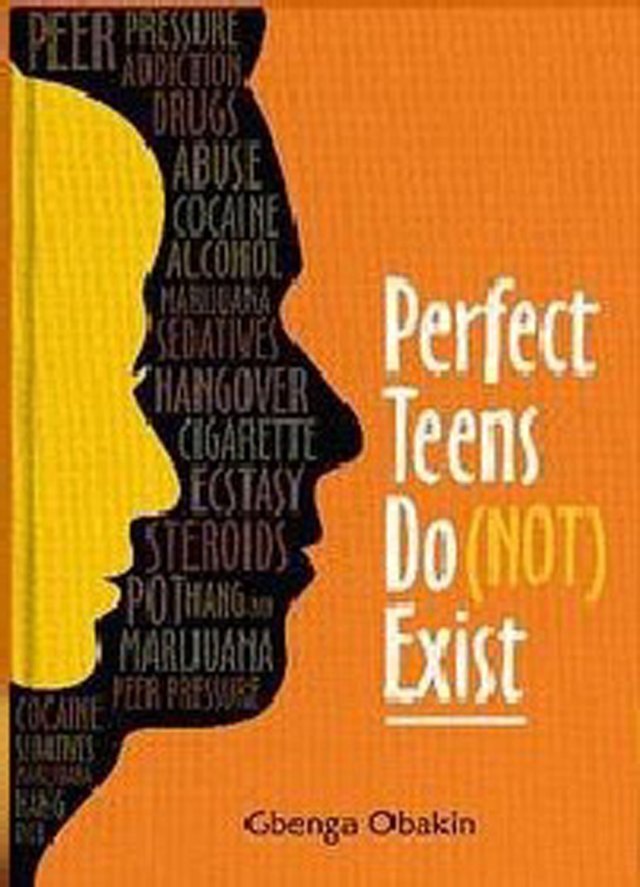Youth coach, Gbenga Obakin in his book, Perfect Teens (Do) Not Exist published by Richie Freggs Limited juxtaposes the age old African traditional heritage with the new world behavioural mindset. This is done with the aim of ensuring that the present societal ills can be curbed by following the ideologies of the past.
He believes that the mindset of teens, at his childhood and adulthood, are miles apart. And as a result, a lot of work needs to be done to build a solid foundation that would prevent the birth of vices and insecurity in the near future.
Touching on various key issues facing teenagers, Obakin counsels his reader using his experiences, family background, academic pursuits, friendship goals or intuition, as well as lessons drawn, precepts learnt and morals to be acquired as roadmaps.
The central topic of chapter one is peer pressure. While the general view of peer pressure is negative, the author reiterates that there is a positive side to it. He reveals that there are two types of peer pressure: “Pressure from external forces that makes you want to fit in” and “Pressure from your peers who are pushing you to go further in life”.
This is then explained further with an assertion that “people will either inspire you, be inspired by you or drain you,” a reminder that a person should stick to his or her principled stance and not be wavered by superficial circumstances.
It is evident that Obakin understands the weight of peer pressure, as he goes into another dimension in the second chapter. In this chapter, he shares ways in which peer pressure could be resisted, using the popular movie, Mean Girls as an inference to call to mind six sets of values to put into service to deal with it.
Questions plague teens daily on their purpose in life. Fortunately, chapter three divulges a collection of applicable knowledge on it. According to the writer, reflection on one’s unique personality, highlights of belief system, path discovery, good habit development and constant personal progression are some of the key solutions to purpose discovery.
Chapter four highlights the aftermath of those who are involved in excessive use of drugs, alcohol or addiction. While the author agrees that moderation is key, he doesn’t mince words to say there is never a win-win situation with these vices. He skillfully and purposefully tells a story about a teen named John, who due to peer pressure, became a drug and alcohol addict and died from its effects – a tragic account of an inevitable ending for anyone that indulges in these substances.
It is also clear that the author has done a thorough research on illegal drug use, as he uses authentic statistics to make a good argument. He cites an example of a public figure using her mistakes as a forewarning to the readers as to what could befall them if they follow her destructive path.
The final chapter is focused on the Internet and having the right attitude. Obakin explains the pros and cons of the Internet and appeals to the reader to “use the Internet for good” even with the ever progressing technological advancements.
According to him, developing the right attitude is core to achieving one’s goals in life. He tops this argument by proffering six tips to becoming an almost perfect youth.
While I urge all to read this book, I would recommend it mostly to teenagers and young adults, primarily because it gives answers to the questions that bother them the most. The book is written in such a way that they would easily assimilate its content. Also, it uses analogies they can most definitely relate to. All said, Perfect Teens Do Not Exist is a useful asset to our society.







